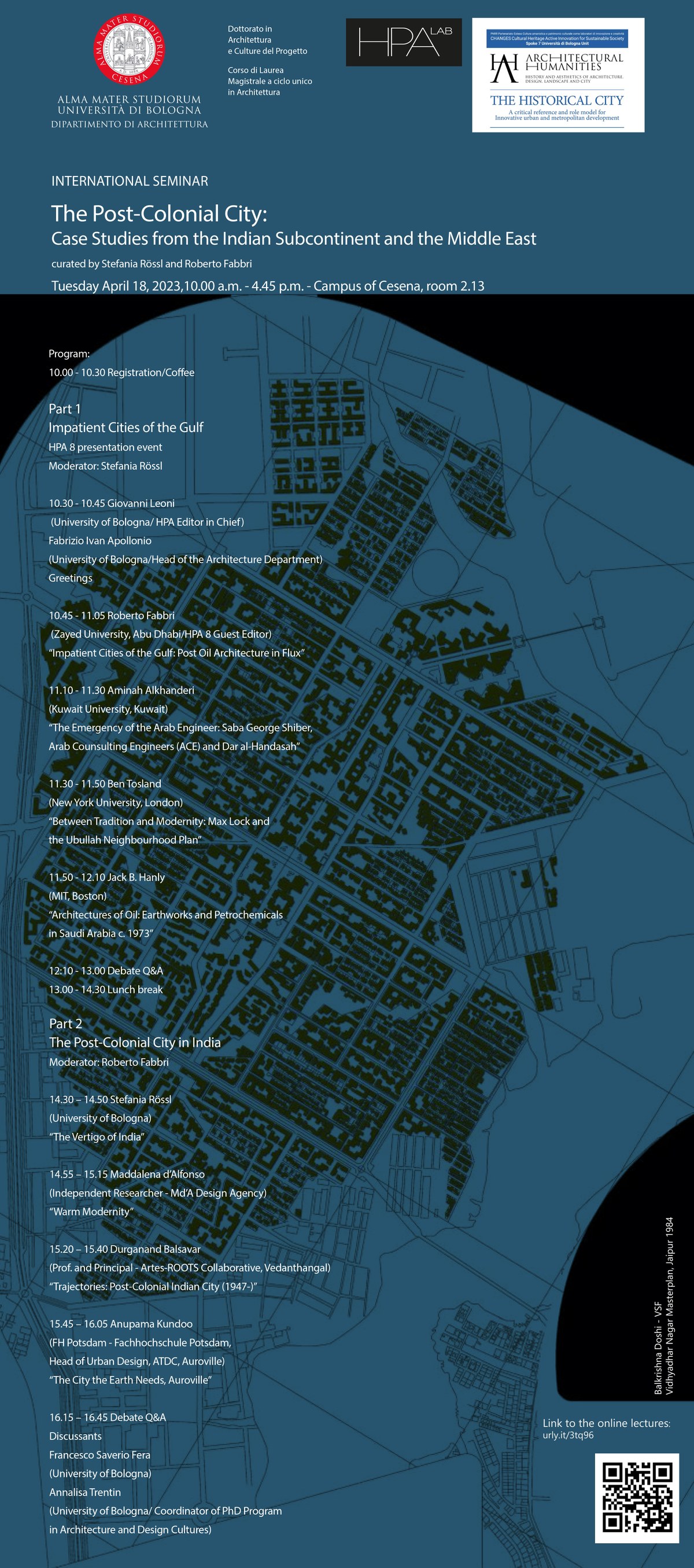The Post-Colonial City: Case Studies from the Indian Subcontinent and the Middle East
curated by Stefania Rössl and Roberto Fabbri
-
Data: 18 APRILE 2023 dalle 10:00 alle 16:45
-
Luogo: Campus of Cesena, room 2.13 - Evento in presenza e online
-
Tipo: Seminari
In the mid-20th century, the crisis of colonial powers and the formation of the newly independent nation-states called for different urban forms to accommodate the infrastructure needed and to represents the nation-building narrative. Top-down visions and urban plans were conceived to mediate local needs and international aspirations, and to turn military control into commercial deals. After becoming independent, for many former colonies or protectorates becoming modern, and often - rejecting tradition, was imperative. Modernity was rapidly adopted from western models and, when possible, adapted to local conditions generating new hybrid forms of dwellings. These decades created new patterns of exchanges (knowledge/culture/materials/technology) between North and South, East and West, which transformed the urban environment physically and socially.
The seminar aims to reflect on these exchanges and retrace them in the post-colonial city’s built form and patterns of growth, highlighting similarities and differences in India and the Middle East.
Promoted and organized by:
HPA Histories of Postwar Architecture Lab
In collaboration with:
Department of Architecture, University of Bologna
Master's Degree Course in Architecture – Cesena Campus
PhD Program in Architecture and Design Cultures
PNRR PE CHANGES Spoke 7 – University of Bologna Unit
THE HISTORICAL CITY A critical reference and role model for Innovative urban and metropolitan development
